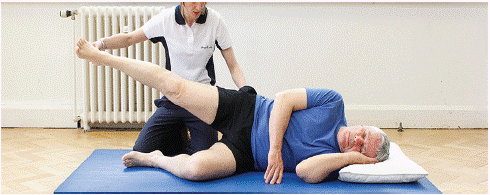
Prespective
Phys Med Rehabil Int. 2023; 10(3): 1219.
Enhancing Neurological Rehabilitation: The Impact of Neuro Physiotherapy on Walking Disorders
Aparna Pradhan*
Acme Physiotherapy, Ground Floor, MIT Classic, North Ave, opp. to ICICI Bank, Kalyani Nagar, Pune, Maharashtra, India
*Corresponding author: Aparna Pradhan Acme Physiotherapy, Ground Floor, MIT Classic, North Ave, opp. to ICICI Bank, Kalyani Nagar, Pune, Maharashtra, India. Email: acmephysiotherapyseo@gmail.com
Received: August 29, 2023 Accepted: September 27, 2023 Published: October 04, 2023
Introduction
Neurological disorders can have a profound impact on an individual's ability to walk and move freely. These conditions, ranging from stroke to Parkinson's disease, often result in walking disorders that significantly reduce the quality of life. Neuro physiotherapy clinic, a specialized branch of physical therapy, plays a crucial role in enhancing neurological rehabilitation and addressing walking disorders. In this blog, we will explore the key points and subpoints about the impact of neuro physiotherapy on walking disorders.

Figure 1:
Understanding Walking Disorders in Neurological Conditions
¾Diverse Neurological Conditions: A variety of neurological disorders, including stroke, multiple sclerosis, Parkinson's disease, and traumatic brain injuries, can lead to walking disorders.
¾Challenges Faced: Walking disorders manifest as gait abnormalities, balance issues, muscle weakness, and coordination difficulties. These challenges limit a person's ability to walk safely and efficiently.
Neuro Physiotherapy: An Overview
¾Specialized Rehabilitation: Neuro physiotherapy focuses on rehabilitating individuals with neurological disorders by addressing movement impairments and promoting functional independence.
¾Comprehensive Assessment: A thorough evaluation of the patient's condition, mobility limitations, and specific walking abnormalities is conducted to tailor the treatment plan.
Impact of Neuro Physiotherapy on Walking Disorders
Gait Training and Correction
• Gait Analysis: Physiotherapists analyze the patient's gait pattern to identify abnormalities in stride length, step width, and timing of movements.
• Targeted Exercises: Customized exercises are designed to strengthen weak muscles, improve balance, and correct gait abnormalities.
Balance Enhancement
• Balance Assessments: Neuro physiotherapy includes assessments to identify balance deficits and factors contributing to instability.
• Balance Exercises: Specific exercises, such as weight shifting, proprioception drills, and dynamic balance training, are prescribed to improve stability during walking.
Muscle Strengthening and Coordination
• Targeted Muscle Activation: Physiotherapists target muscles involved in walking to improve their strength and coordination.
• Functional Tasks: Patients are guided through exercises mimicking real-life movements to enhance muscle coordination required for walking.
Mobility Aid Prescription
• Assistive Devices: Neuro physiotherapists assess the need for mobility aids, such as canes or walkers, and provide guidance on their proper use.
• Training: Patients are trained in the safe and effective use of mobility aids to regain independence in walking.
Patient-Centered Approach
Individualized Treatment Plans
• Tailored Interventions: Treatment plans are designed based on the patient's specific neurological condition, goals, and progress.
• Progress Tracking: Regular assessments track improvements and guide adjustments to the treatment plan.
Motivational Support
• Psychological Impact: Neuro physiotherapists provide emotional support, helping patients cope with the challenges of their conditions and the rehabilitation journey.
• Goal Setting: Setting realistic goals for walking improvement enhances motivation and engagement in the rehabilitation process.
Evidenced Benefits of Neuro Physiotherapy
Improved Walking Performance
• Enhanced Gait: Patients experience improvements in stride length, speed, and overall walking pattern.
• Increased Independence: With better walking abilities, individuals regain the freedom to perform daily activities.
Enhanced Quality of Life
• Social Engagement: Improved walking leads to increased social interactions and participation in social and recreational activities.
• Mental Well-being: Regaining the ability to walk boosts self-confidence and positively impacts mental health.
Conclusion
Neurological disorders should not define a person's ability to walk and move. Neuro physiotherapy's specialized approach offers hope and substantial improvements for individuals with walking disorders.
By addressing gait abnormalities, improving balance, strengthening muscles, and providing personalized care, neuro physiotherapy empowers patients to regain their mobility, independence, and overall quality of life. If you or a loved one is struggling with a neurological walking disorder, consider seeking the expertise of a neuro physiotherapist to embark on a journey of rehabilitation and transformation.